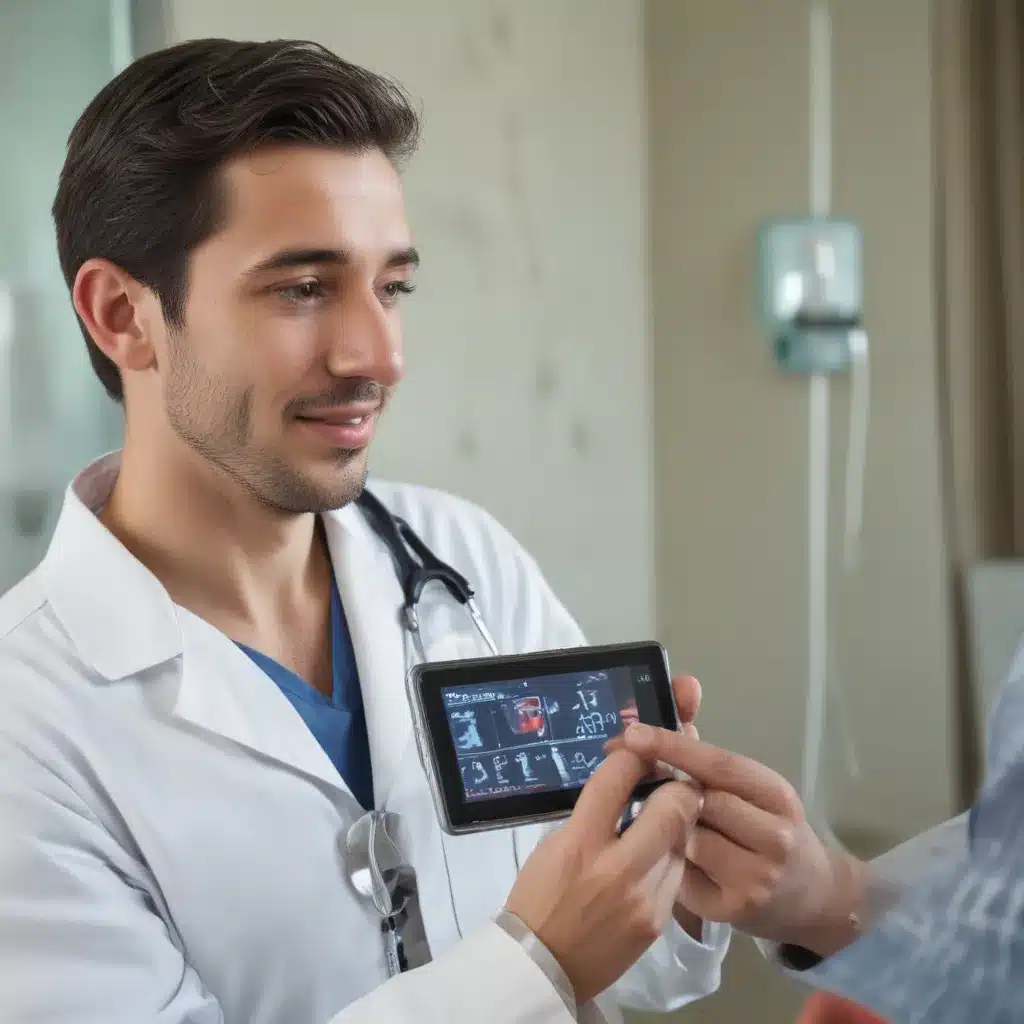How IoT is Revolutionizing Medical Care
The world of healthcare has always been a delicate balance of cutting-edge technology and deeply human care. But in recent years, a new player has entered the field, one that is set to revolutionize the way we approach medical treatment – the Internet of Things (IoT).
Imagine a future where your every vital sign is constantly monitored, allowing your doctor to detect the first signs of trouble before you even feel unwell. Or a world where your medication automatically adjusts based on your body’s unique needs, ensuring you get the right dose at the right time, every time. This is the promise of IoT in healthcare, and it’s a promise that is rapidly becoming a reality.
Connecting Patients and Providers
At the heart of IoT’s impact on healthcare is its ability to bridge the gap between patients and their providers. With a network of interconnected devices, from wearable fitness trackers to smart inhalers, doctors can now access a wealth of real-time data about their patients’ health. [1] This allows them to make more informed decisions, catch problems early, and provide personalized treatment plans tailored to each individual.
“It’s like having a constant pulse on our patients’ wellbeing,” says Dr. Emily Saunders, a cardiologist at a leading UK hospital. “With IoT, we can get ahead of issues before they become critical, and that’s a game-changer in terms of improving outcomes and quality of life.”
Transforming Chronic Care Management
One of the most exciting applications of IoT in healthcare is its ability to revolutionize the management of chronic conditions. For the millions of people living with diseases like diabetes, heart disease, or asthma, IoT-powered devices can be a literal lifeline.
Take the example of a patient with type 2 diabetes. Instead of having to manually track their blood sugar levels and inject insulin as needed, they can now wear a continuous glucose monitor that automatically sends this data to their doctor. [2] If their levels start to dip or spike, the doctor can remotely adjust their treatment in real-time, preventing a potentially dangerous health crisis.
“IoT has given my patients a newfound sense of control over their condition,” says Dr. Saunders. “They no longer have to worry about forgetting a dose or waiting days to get feedback from me. It’s a weight off their shoulders, and it’s allowing them to live fuller, healthier lives.”
Enhancing Preventive Care
But IoT’s impact on healthcare extends far beyond just chronic disease management. It’s also transforming the way we approach preventive care, enabling doctors to detect potential issues before they even manifest.
Consider the example of a patient at risk for heart disease. By wearing a smart watch that continuously monitors their heart rate, activity levels, and sleep patterns, their doctor can identify subtle changes that could be early warning signs of a problem. [3] They can then proactively recommend lifestyle changes or additional tests, potentially preventing a heart attack or stroke down the line.
“IoT is allowing us to be far more proactive in our approach to healthcare,” explains Dr. Saunders. “Instead of waiting for something to go wrong, we can now use these connected devices to stay one step ahead and keep our patients healthier for longer.”
Overcoming Barriers to Adoption
Of course, the adoption of IoT in healthcare hasn’t been without its challenges. Issues around data privacy, cybersecurity, and interoperability have all posed obstacles to widespread implementation. [4] But as the technology continues to evolve and regulatory bodies work to address these concerns, the benefits of IoT are becoming increasingly difficult to ignore.
“I remember when I first started talking to my patients about these IoT devices, some of them were hesitant,” recalls Dr. Saunders. “But now, I can’t keep them off the waitlist. They see the difference it’s making in their lives, and they want in.”
The Future of IoT in Healthcare
As the world of healthcare continues to evolve, it’s clear that IoT will play an increasingly critical role. From remote monitoring and chronic disease management to preventive care and beyond, this transformative technology is poised to save countless lives and improve the quality of care for people around the globe.
“IoT isn’t just a passing fad in healthcare,” concludes Dr. Saunders. “It’s a fundamental shift in the way we approach patient care, and I believe it’s only going to become more essential as time goes on. The future of medicine is connected, and I couldn’t be more excited to be a part of it.”
References:
[1] USC Keck School of Medicine. (2023). “How Technology is Changing the Delivery of Health Care Services.” Retrieved from https://mphdegree.usc.edu/blog/public-health-technology
[2] NBC News. (2023). “Cyberattack on Change Healthcare Leaves Patients Struggling to Get Medication.” Retrieved from https://www.nbcnews.com/health/health-care/cyberattack-change-healthcare-patients-struggle-get-medication-rcna141841
[3] World Economic Forum. (2022). “Global Chip Shortages Put Life-Saving Medical Devices at Risk.” Retrieved from https://www.weforum.org/agenda/2022/05/global-chip-shortages-put-life-saving-medical-devices-at-risk/
[4] Life Sciences Intelligence. (2023). “Unveiling the Impact of Biotechnology Breakthroughs in Healthcare.” Retrieved from https://lifesciencesintelligence.com/features/unveiling-the-impact-of-biotechnology-breakthroughs-in-healthcare













